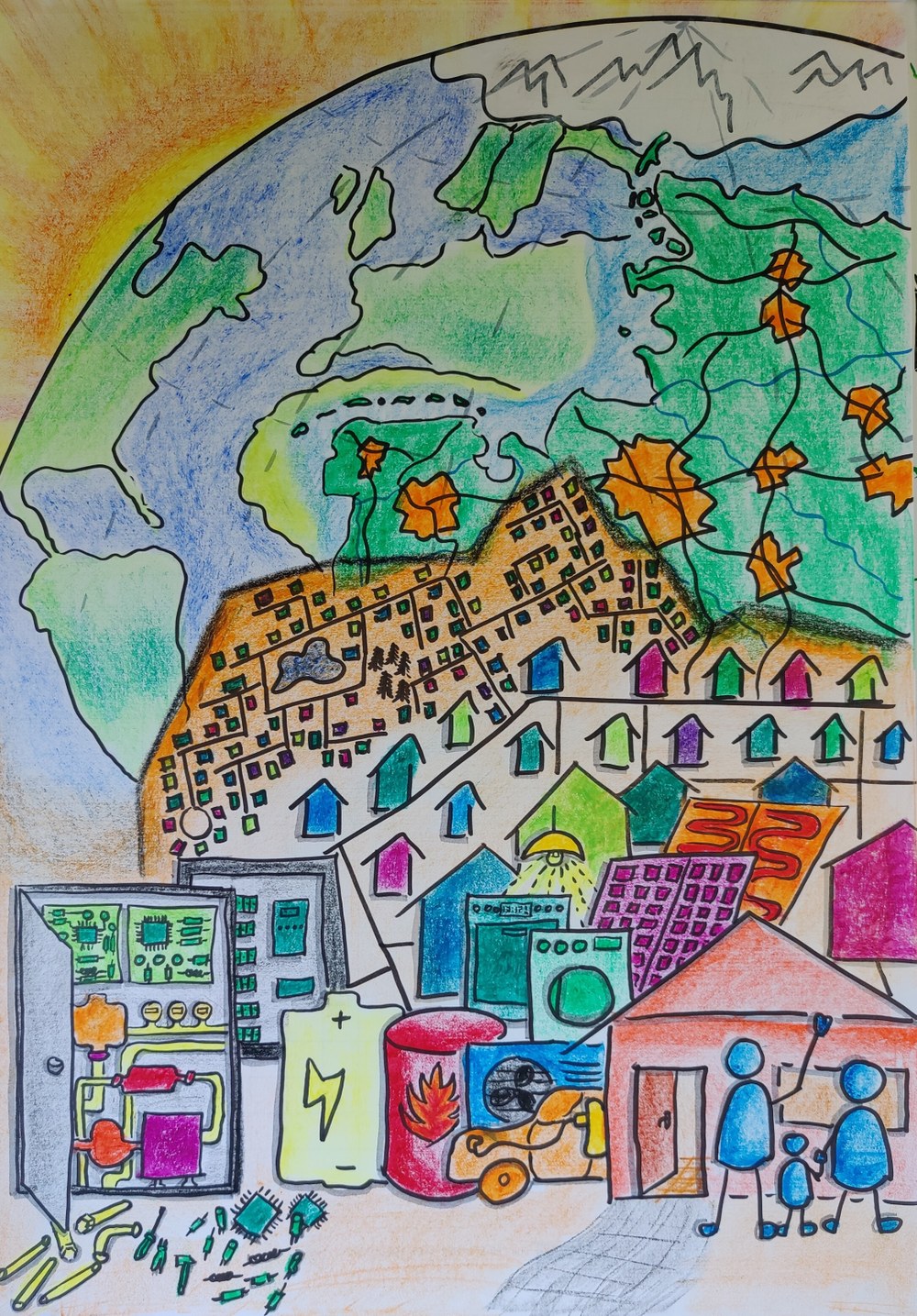Introduction: Our Challenges
In contrast to conventional large-scale power plants, electricity generation from renewable energies is weather-dependent and decentralised. If this is to take over the lion's share of energy supply in the electricity, heating and transport sectors, the infrastructure and operational management of networked energy systems must be fundamentally changed. This transformation process will characterise the coming decades of energy transition and address all levels of the energy system, from central large-scale infrastructures such as storage caverns to electricity and gas grids and technical equipment of buildings. The Institute of Networked Energy Systems develops concepts and technical solutions for this central part of the energy transition process.

Technology and knowledge transfer under one roof
Energy transition poses major challenges for the economy, society and politics alike. As technical, economic, political, ecological and social boundary conditions are constantly changing, the transformation process cannot follow a rigid timetable, but must be readjusted as required at all levels to accompany the process. The Institute of Networked Energy Systems supports this change through two levels of results transfer:
In the field of technology transfer, we join forces with companies in research projects to develop technical solutions for all levels of networked energy systems, from buildings and residential neighbourhoods to international grids. By working closely with decisionmakers, engineers and project planners, we contribute significantly to the realisation of technology transfer in numerous projects.
In the area of knowledge transfer, we also address stakeholders from politics, industry and civil society to support decision-making processes. Through technology assessment, scenario development as well as system and market modelling, we help decisionmakers to decarbonise the energy system and pursue cost-minimised and robust target corridors in the transformation process towards a climate-neutral energy system. This applies, for example, to the design of political regulatory framework conditions and trend-setting investments in infrastructure of climate-neutral energy systems.
The Institute of Networked Energy Systems does not view the energy transition in isolated mosaic pieces, but as a systemic whole. We are therefore an ideal partner for policymakers and companies when it comes to strategic issues and technology developments that require a systemic view of the energy supply and its transformation.
In order to dovetail technology and knowledge transfer in the best possible way, our institute is home to both technical and systems analysis research groups. This helps us to utilise synergy effects across the entire spectrum of systems research: On the one hand, concrete technical solutions can be developed that actually make a decisive contribution to solving problems from a systems analysis perspective. On the other hand, system perspectives can be discussed in detail to determine whether they are actually technically and industrially feasible. Further technical knowledge from the DLR is also utilised here. This interaction enables a unique overall systemic view that optimally supports the development of solution-orientated concepts.
In terms of content, the Institute of Networked Energy Systems is focussing on the following four challenges, which we consider to be key fields of action for the continued success of energy transition:
